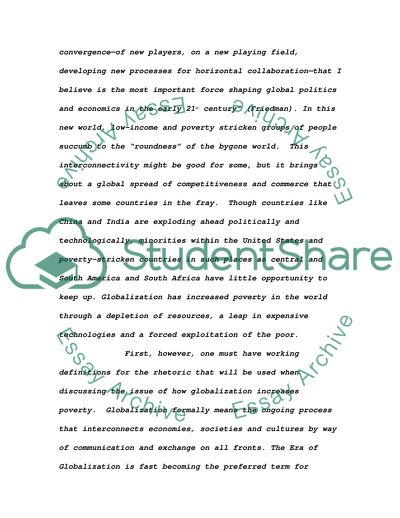Cite this document
(Globalization and the Increase of Poverty on an International Level Essay - 9, n.d.)
Globalization and the Increase of Poverty on an International Level Essay - 9. https://studentshare.org/politics/1730583-globalization
Globalization and the Increase of Poverty on an International Level Essay - 9. https://studentshare.org/politics/1730583-globalization
(Globalization and the Increase of Poverty on an International Level Essay - 9)
Globalization and the Increase of Poverty on an International Level Essay - 9. https://studentshare.org/politics/1730583-globalization.
Globalization and the Increase of Poverty on an International Level Essay - 9. https://studentshare.org/politics/1730583-globalization.
“Globalization and the Increase of Poverty on an International Level Essay - 9”. https://studentshare.org/politics/1730583-globalization.


